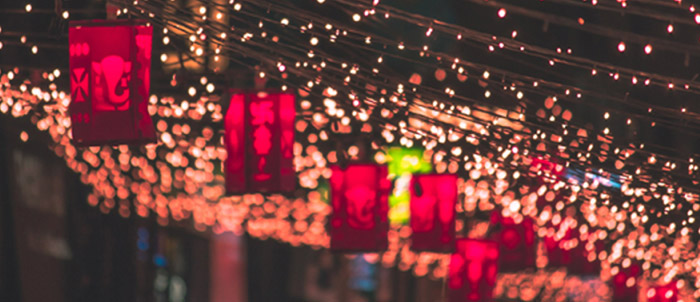It’s that time of the year when you see markets bustling with people, the entire city is covered under the beautiful veil of bright lights with the aroma of sweets slowly filling up the air… Diwali, the most-awaited festival for Indians, is a season for family, fun and festivities — prep for which begins as soon as Navratri ends with everybody’s ‘favourite’ family ritual ‘Diwali Ki Safai’ and shopping sprees with ‘never-ending’ last minute decorations. Lighting up homes with diyas and lamps, burning crackers are the quintessential activities of this festival, but sometimes such things can turn into unfortunate incidents. Hence, precaution is the only key for safer celebrations. So, before the festive fever hits you, we have some easy-to-follow safety tips that can shield you and your loved ones from harm.
Morning Mantra
Waking up early and going out for a walk or jogging is all good, but it is better to stay indoors in mornings throughout Diwali. Why do you ask? Because the firecrackers you burn with so much gusto at night during Diwali release harmful smoke particles which later gets mixed with fog and gives rise to the deadly smog. Smog is a serious issue in most of the urban cities and during Diwali, the unprecedented pollution and smoke released from explosives can cause serious health issues like respiratory problems, irritation in the eyes and an increased risk of asthma. It is advisable to wear a safety mask before you step out of the home in the morning, or best still, stay indoors and exercise at home during Diwali.
Wear wisely
Diwali is also the time to splurge on clothes. You look out for the latest trends, but do you ever check how safe that outfit would be if worn during Diwali? Fabrics like nylon, silk and linen can easily catch fire. Be careful if you are wearing a ghagra, sherwani or carrying a dupatta. Another important point to keep in mind is not to run around bare feet, and this applies to kids too. Choose footwear that properly covers your feet so that you don’t end up hurting yourself from brunt crackers on the floor.
Take extra care
Your eyes and ears are the two primary sensory organs which are highly susceptible to the aftermath of celebration. Dr Shashi Kapoor, Ophthalmologist, Eye Surgeon and a professor at JJ Medical College says, “Smoke and smog can cause an adverse effect on eyes and vision. It is advisable to wear protective eyeglasses during this time. Frequent washing of the eyes with clean running water will also help to reduce the load of harmful elements present in the eye.”
Dr Sunita Bage, ENT Specialist (Eyes, Nose and Throat) and Assistant Professor at JJ Hospital warn, “It’s recommended to avoid sounds louder than 140 decibels of maximum sound pressure. Firecrackers can exceed 150 decibels and prolonged exposure to sounds over 80 decibels can also lead to a permanent hearing loss.”
Watch what you eat
Diwali is incomplete without sweets and savouries. We exchange them with our friends and relatives and hog on delectable festive specials without guilt. Apart from smog, smoke, noise and fire, another major issue that arises during this time is food adulteration. Don’t buy sweets or food items from street-side shops as they are less likely to follow the quality standards. Stocking up on sweets in advance could be a bad idea as they might get stale if not consumed in the stipulated time limit. Smell before you eat and buy food items which FDA (Food and Drug Administration) approved.
Decorate with care
During Diwali, we make sure that every nook and corner of our home shine brightly. We light diyas, lamps and lanterns so that our home dazzles and radiates the festive vibes. But if you have kids and infants at home then make sure you keep flammable items like diyas and aggarbattis far from their reach. Don’t put diyas near curtains as they may catch fire.
Celebrate Responsibly
It usually happens that people don’t keep a check on how their celebrations affect others. Make a point to not leave kids alone while they burst crackers. “Even the most innocent looking crackers like phuljari, chakri can cause immense damage. An accidental injury can occur anytime, so children should be under careful supervision at all times,” says Dr Kapoor.
Loud noises can scare animals and may cause discomfort for sick people. Avoid burning crackers near hospitals or old age homes. Dr Sunita says, “Loud noise and air pollution caused by the firecrackers adversely affects the human body. It triggers stress, annoyance, hypertension sleep disturbance running nose, sneezing irritation of the eye, sore throat, difficulty in breathing and lung-related diseases.” Hence, it is better not to trouble people with your celebration.
Expert advise
Apart from the above safety measures Dr Kapoor and Dr Bage shares some essential safety tips for you. Dr Kapoor says, “It is better that infants and older people are kept indoors during this time. If they wish to participate it is best they keep a large safety distance to observe the fireworks displays. If somebody suffers an eye injury due to firecrackers it is recommended to only put a clean gauze on the eye and rush to a casualty dept of a hospital or in particular an eye hospital. It is not advised to clean or rub or wash the eye.”
Whereas Dr Bage advises, “Do not light firecrackers inside the house. Avoid sound producing fireworks. Stay indoors with the door closed. Cover your ear with cotton earplugs. Keep your inhalers handy and stock up your refills with a proper expiry date. Wear wet cloth as a mask to avoid shortness of breath or choking.”
Also Read : 5 game-changing phones
Source: freepressjournal.in



Contact Us